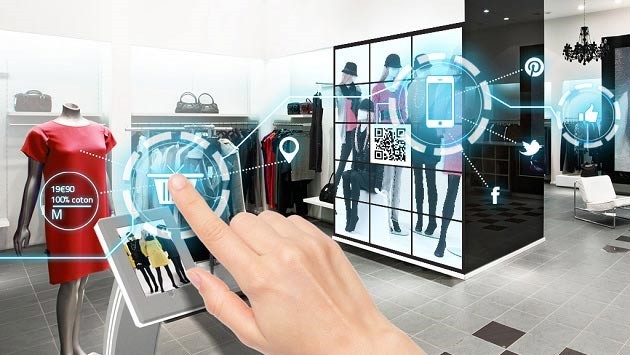The retail industry is undergoing a massive transformation. New technologies are redefining how businesses interact with customers and manage operations. But with innovation comes the challenge of standing out in a competitive market. That’s where public relations (PR) agencies step in, bridging the gap between cutting-edge retail technology and public perception.
By shaping narratives, amplifying voices, and steering brands through the complexities of modern marketing, PR agencies are helping retail tech companies lead the charge into the future.
The Intersection of Retail Tech and Public Relations
Retail technology isn’t just about flashy gadgets or seamless payment systems. It’s about reshaping how people shop, businesses operate, and how data enhances customer experiences. PR plays a pivotal role in ensuring these innovations gain traction and credibility.
Tech companies often face a unique hurdle: their innovations are complex and not immediately understood by the general public. PR agencies translate these complexities into digestible stories. For instance, consider how self-checkout systems or augmented reality (AR) fitting rooms went from niche ideas to mainstream trends. Behind these successes are PR strategies that explain the value of the technology, build trust, and inspire adoption.
Shaping Brand Narratives for Tech Innovation
In the retail tech space, storytelling is everything. Innovative products are not enough; brands must show why they matter. PR agencies are masters at crafting compelling narratives that resonate. They dig deep into a company’s mission and values, transforming technical features into relatable benefits.
Take, for example, a startup offering AI-driven inventory management. A PR agency won’t just talk about algorithms. Instead, they’ll highlight how this technology minimizes waste, reduces costs, and improves the shopping experience. PR agencies position their clients as problem solvers and innovators through blogs, interviews, and thought leadership pieces.
Leveraging Media to Propel Retail Tech Brands
Media coverage can make or break a retail tech company’s visibility. PR agencies work tirelessly to secure earned media placements, which hold more credibility than paid advertisements. Through strategic press releases, media pitches, and relationship-building, they get retail tech stories featured in prominent publications.
Consider how a company launching a cashier-less store might gain attention. A PR agency would craft a press release emphasizing the broader implications of the technology—its potential to revolutionize convenience shopping or reduce waiting times. By positioning their client as a thought leader, they ensure the company is seen as more than just another tech provider.
Influencer Marketing in Retail Tech
Influencers aren’t just for fashion or lifestyle brands anymore. In retail tech, influencers with a tech-savvy audience can be invaluable. PR agencies identify these influencers and build partnerships that enhance visibility and trust.
For example, a retail tech company introducing AR-powered try-on experiences could collaborate with influencers who specialize in technology or fashion. By showcasing the technology in action, influencers make it relatable and exciting. This humanizes the brand and creates authentic connections with potential customers.
Digital PR and the Power of Data
Data isn’t just for retail tech companies—it’s also a powerful tool for PR. Modern PR agencies rely on analytics to measure the success of their campaigns and refine their strategies. They identify what works and what doesn’t by tracking website traffic, social media engagement, and media mentions.
For example, a retail tech company launching a new app might analyze how media coverage impacts downloads. Retail tech PR agencies then adjust their messaging to maximize impact. This data-driven approach ensures that every campaign is as effective as possible.
Crisis Management for Retail Tech
Technology is transformative but not without risks. Retail tech companies face unique challenges, from data breaches to system failures. PR agencies are on the front lines when these crises occur, protecting brand reputation.
Imagine a payment processing company experiencing a system outage during peak shopping hours. Without a solid crisis communication plan, the company risks losing customer trust. PR agencies craft timely, transparent responses that reassure stakeholders and mitigate damage. They also help brands rebuild their image after the crisis has passed.
Shaping Policy and Advocacy in Retail Tech
Regulation often lags behind innovation, creating challenges for retail tech companies. PR agencies are crucial in advocating for policies supporting technological growth while addressing public concerns.
For example, a company developing AI-powered customer service bots might face scrutiny over data privacy. PR agencies work to educate policymakers and the public, emphasizing the safeguards in place. Through advocacy campaigns, they help shape a favorable environment for their clients to thrive.
A Look Ahead: The Future of PR in Retail Tech
The retail tech landscape is constantly evolving. Emerging trends like AI, blockchain, and AR are reshaping the industry. PR agencies must adapt to these changes, finding new ways to tell stories and reach audiences.
One promising avenue is immersive storytelling through AR or VR, which allows consumers to experience retail tech innovations firsthand. Another important aspect is the importance of sustainability messaging, as consumers demand more eco-friendly practices from retailers. PR agencies must stay ahead of these trends to keep their clients relevant.
Conclusion
Retail technology is changing how we shop, and PR agencies are the unsung heroes helping these innovations shine. They position retail tech companies as market leaders by crafting compelling stories, leveraging media, and navigating challenges. As the industry continues to evolve, the partnership between retail tech and PR will grow stronger. A strategic PR approach is no longer optional for businesses looking to make their mark—it’s essential.






